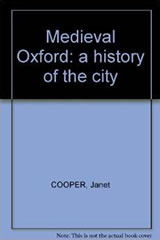 When I begin to think of a story—a work of historical fiction—I begin to acquire books about the subject. Here my day-job of yore—a research librarian—helps me locate titles. More often than not, I get these books via the internet, where a host of sites guide me to the cheapest copies. Sadly, if fortuitously, most of these books are discards from library collections.
When I begin to think of a story—a work of historical fiction—I begin to acquire books about the subject. Here my day-job of yore—a research librarian—helps me locate titles. More often than not, I get these books via the internet, where a host of sites guide me to the cheapest copies. Sadly, if fortuitously, most of these books are discards from library collections.
Let it be understood that, quite often, I do not go forward with many of these ideas. Still, I have the pleasure of learning much that is curious and interesting, if not exactly useful.
That said, when I do go on with a project, I have these rather arcane books on my shelves, and I use them. Just today, I was working on a novel which is set, in small part, in Oxford, England, medieval Oxford. There is a scene in a tavern, an inn. Does it really matter than I know the name of a real inn, and a real street to go forward? Probably not.
That said, when I pick up my copy of Medieval Oxford, A History of the City, by Janet Cooper, being “an extract from The Victoria History of the County of Oxford, Volume IV” ( a discard of the Oxfordshire Abington Library), not only do to I find the name of a real medieval tavern, and its precise location, there is a description of the place.
Will it matter to the reader that I have been able to go forward with real verisimilitude? I don’t know. Nevertheless, it matters to me—not just because it is accurate—but accuracy gives me confidence as a writer, and that confidence enhances my writing. Moreover, that enhancement will, I am quite sure, entertain the reader just a bit more.
The formula is simple: do research + gain more confidence + write better = entertain more readers.
5 thoughts on “Research matters”
I enjoyed this post. Thank you.
I too have noticed that many of the used books I buy from internet searches are library discards. It is. A pity.
It matters, only because it shows in your writing. And it lends authenticity, even if nobody knows or cares but you (and we librarians, who still see the value in discards and always want them to find the right home!).
And that’s why I loved Crispin: the Cross of Lead. You avoided a stereotypical view of the Middle Ages. Instead, you elegantly weaved historically-accurate details about 14th century village life into an action-packed story. Crispin is a good way of introducing children to such events as the Peasants’ Revolt.
Does this kind of extensive research matter to your readers? It certainly does to me! I suspect it is one of the many reasons many love your books.
Does this mean a new book is in the works? I wish I could sit inside your mind and listen to it in the fold. But I guess that’s what reading is, isn’t it? I’m very excited!
Incidentally, isn’t it funny what books are discarded from the library? Old books can be vastly underestimated. I have quite a collection myself. People think that because the Internet exists old books are not necessary, especially those containing non fiction. The trouble with the Internet is that you must initiate a search. The great thing about a book is the book initiates the search for you. There’s a big difference.